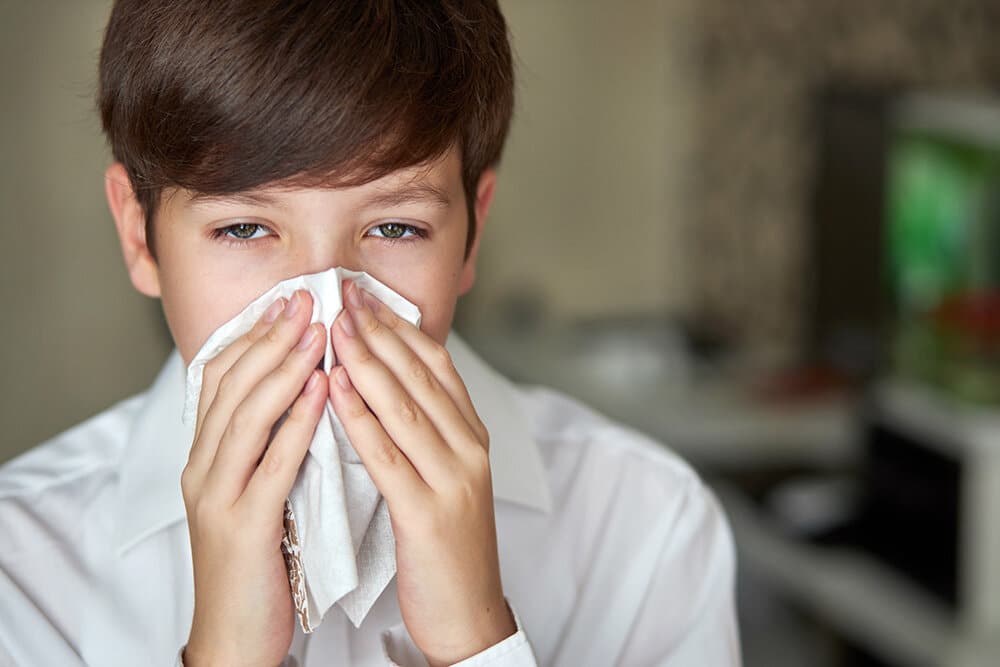Sinusitis is an infection of the sinus cavity tissues, which usually occur with allergies or colds. Bacteria gets trapped and begins to grow, blocking the airflow or becoming a greenish mucus discharge. Depending upon how long these symptoms last, sinusitis is arranged in three categories:
- Short-term (Acute) – symptoms last less than 12 weeks and respond to correct treatment.
- Long-term (Chronic) – symptoms last longer than 12 weeks.
- Recurrent – Acute Sinusitis that occurs 3 times within the same year.

- A cold lasting longer than 10-14 days
- A cold accompanied by a low-grade fever
- Nasal drainage that is thick and yellowish-green in color
- Post-nasal drip that may be accompanied by a sore throat, cough, nausea, bad breath, or vomiting.
- Swelling near the eyes
- Irritability
- Headaches
- Fatigue
Our Pediatric ENT Specialists here at Northeast Atlanta ENT will provide insight and a diagnosis for your child by looking at health history, providing a physical exam, and running tests such as x-rays, CT scans, or cultures. X-rays can show if there are blockages, CT scans can show blockages and even take a much closer look at the sinus cavities at many different angles, and cultures can provide an idea of what is aggravating the sinuses and causing the issue. Treatment will depend on your child’s age, health, symptoms, and how severe his or her condition is.
Acute Sinusitis has been known to get better on its own; however, your child may need an antibiotic to kill the bacteria or antihistamines to reduce swelling if the infection is allergy-related. Chronic Sinusitis usually requires an ENT diagnosis, where the treatment may include antibiotics, decongestants, inhaled corticosteroids (nasal sprays with steroids), or other methods of clearing mucus. An ENT may also prescribe allergy shots or immunotherapy, especially if your child suffers from nasal allergies such as pollen, molds, or dust mites. Surgery is often a last resort, not usually performed on children unless absolutely necessary.
Tips for prevention:
- Avoid allergy triggers, such as cigarette and cigar smoke.
- Wash hands frequently to avoid rubbing germs into the nose, eyes, or mouth.
- Use a humidifier in dry, indoor environments.
If you feel like your child is suffering from Sinusitis, schedule a visit with us. Our Pediatric ENTs will provide the best care and treatment to suit your child’s needs.
